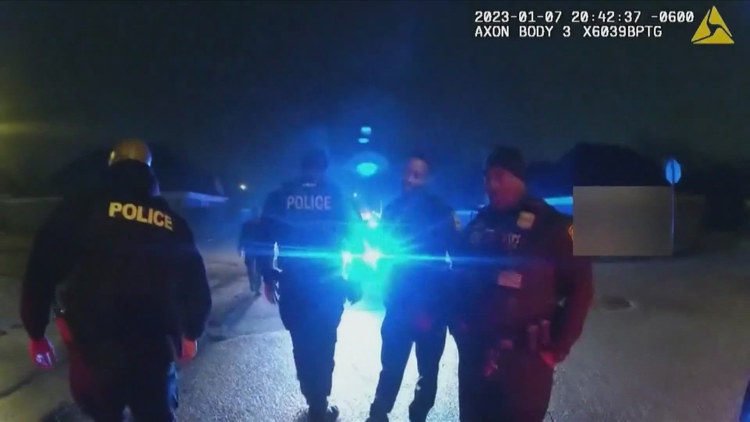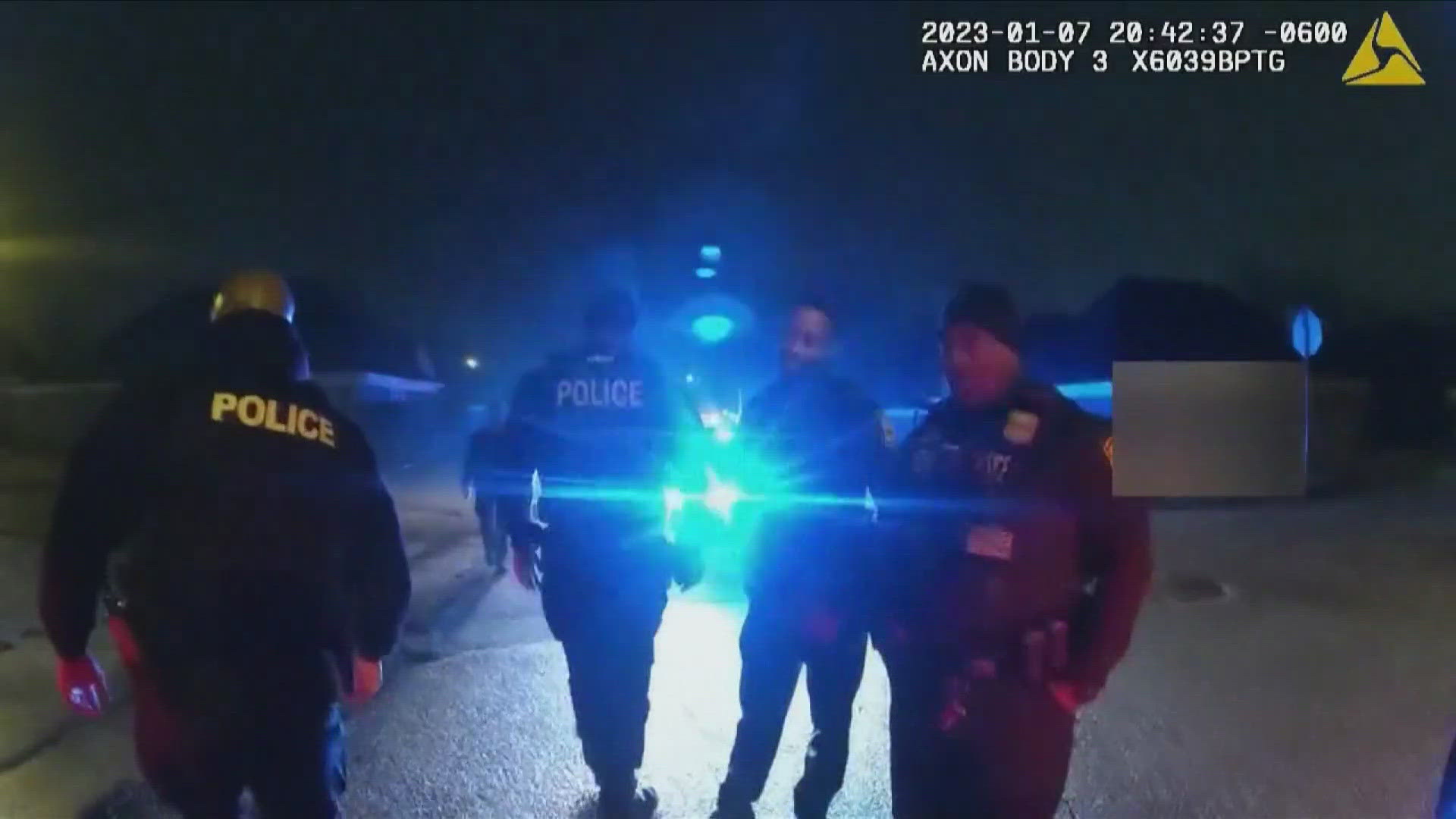MEMPHIS, Tenn. — Tadarrius Bean’s attorney John Keith Perry called his first witness to the stand in his defense during the trial against three former Memphis Police Department officers.
Bean, along with Demetrius Haley and Justin Smith, is on trial for the traffic stop of Tyre Nichols on Jan. 7, 2023. Nichols died three days later at St. Francis Hospital.
Bean, Haley and Smith are on day 15 of their trial in the United States District Court for the Western District of Tennessee, each facing four counts of deprivation of rights under the color of law through excessive force and failure to intervene, and through deliberate indifference; conspiracy to witness tampering; and obstruction of justice through witness tampering.
Two other officers, Desmond Mills and Emmitt Martin III, took plea deals in the case and testified before prosecutors rested Thursday.
Perry tendered his first expert witness, John Tisdale, to the stand as a use of force expert.
Tisdale said he was a retired former police officer, who had served in a variety of roles in Tennessee, Mississippi and Arizona, as well as teaching officers at academies.
During his time at the Gallatin Police Department, Tisdale stepped down from his role as chief after a months long probe by the Tennessee Bureau of Investigation into his use of criminal databases to conduct background checks on individuals not involved in police cases, reporting from The Tennessean shows.
The district attorney declined to prosecute Tisdale in the case due to the statute of limitations running out.
Tisdale said he initially had reservations about taking the case on as a consultant until he met Bean and reviewed the case filed and videos.
Fifteen minutes into the day, attorneys conducted a sidebar with Judge Mark Norris, who then said he had to take something under advisement and went to his chambers.
Nearly two hours later, Norris said a question had been brought up about media, which led to the sidebar and then, “all hell broke loose.”
Norris said Tisdale could testify on standards and training and whether that is consistent, but could not interpret or narrate videos to the jury.
Tisdale then went over the use of force continuum and defined what the various levels entailed, even saying the use of an ASP baton three times did not rise to the level of needing to intervene.
Perry brought up training standards and noted four hours of handcuffing training. Tisdale called four hours inadequate.
When talking about pepper spray and its impact on officers during a scene, Tisdale said, “If you’re not trained, you’re not going to respond properly.”
Body-worn camera videos from officers Bean and Mills at the second scene were then shown to Tisdale.
Perry had to keep his questions in a hypothetical sense due to the courts orders, and asked if a cop was chasing a suspect and refused to get out of the car to do so, would that be allowed.
Tisdale said no, he would fire that officer.
Perry said if a person had only hit hands in a situation described like Nichols, would that be against MPD or Tennessee POST policy, to which Tisdale said no.
Tisdale said in the hypothetical, holding onto the arm while a baton was used was not a negative. And that the officer could not let go of that arm because the handcuff could be used as a weapon, even if they saw strikes to the head.
Prosecutors noted to Tisdale that the hypothetical didn’t mention any level of threat which determines the level of force used.
Tisdale also said it would be inappropriate to cheer or encourage the use of force, but he is aware it happens.
Prosecutors also brought up that handcuffing is taught more than four hours and in several other courses.
Perry then called Bryant McKinney as a character witness for Bean. The two had graduated from the academy together and considered each other friends.
McKinney described Bean as “by the book” and a person who puts others above themself.
Prosecutors then asked McKinney if someone described like that would use excessive force, or would they stand around laughing about it after.
McKinney said no but did tell prosecutors his opinion of Bean couldn’t change until he saw the totality of the facts.
Justin Smith’s attorney Martin Zummach then called former MPD officer Garrett O’Brien to the stand.
O’Brien testified that head strikes were taught in academy classes, as he once helped teach defensive tactics with prosecution witness Larnce Wright.
He also said that they have not trained officers in the academy that head strikes are deadly force.
O’Brien was going to give testimony on Smith but was not allowed to give character testimony due to an objection.
During cross examination, O’Brien agreed that you wouldn’t need to be trained that head strikes can be deadly.
Defense attorney Michael Stengel then called up Don Cameron, who was tendered as a witness with specialized knowledge on police training.
Cameron was made to review the case on behalf of the defense but then asked questions in a hypothetical manner.
Stengel asked Cameron if the uses of force against a suspect who has fled from police twice and resisted arrest would be justified.
Cameron said yes.
Stengel alluded to Haley’s uses of force when removing Nichols from his vehicle and his kick, which defense says was to the upper torso.
Cameron also agreed that there would be no duty to intervene failure on that hypothetical officer if they missed a majority of the force.
During cross examination, prosecutors noted that Cameron last worked as a police officer in 1981 and has worked and testified primarily in California.
Prosecutors also brought up that in Cameron’s report, he lists a use of force policy from MPD, which was actually for the Metro Police Department out of the District of Columbia.
Cameron also admitted that a majority of his testimony is for officers who are defendants and that officers are not allowed to punish with force.
Court adjourned until Monday morning.



